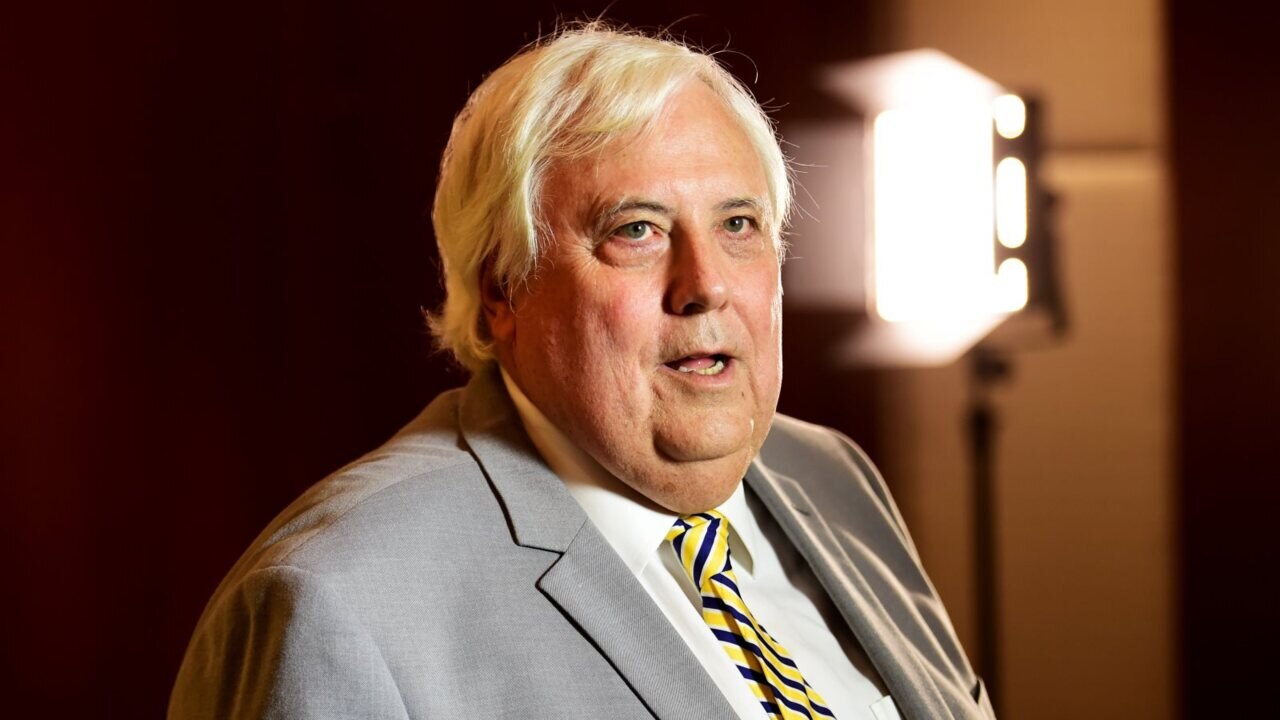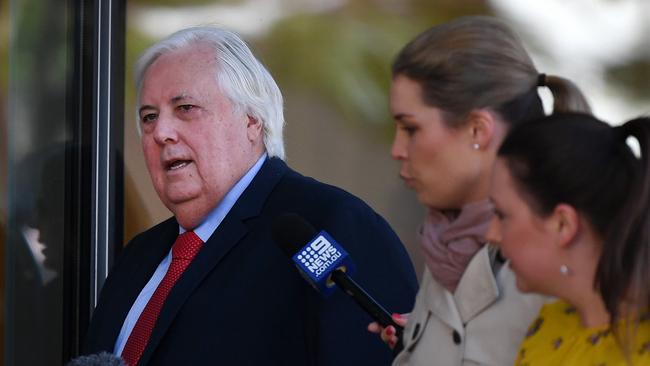Clive Palmer not in court for second day of Queensland Nickel trial
The financial position of the Townsville Nickel refinery has been laid bare in the Supreme Court, with liquidators slamming Clive Palmer’s ‘extraordinary’ financial decisions before the company went into administration.

Crime & Justice
Don't miss out on the headlines from Crime & Justice. Followed categories will be added to My News.
QUEENSLAND Nickel was losing $5 million a month, had $25 million in cash deficiencies and was being “stridently” pursued for millions of dollars of debts by its biggest creditors Aurizon and Glencore before it collapsed.
The woeful financial position of Clive Palmer’s Townsville Nickel refinery was laid bare in the Supreme Court this morning where liquidators for the failed company slammed Mr Palmer’s “extraordinary” financial decisions before the company went into administration in January 2016.
Mr Palmer is representing himself in the case. He has not been in court for day two of the nine-week trial. He has not been in is understood to have sent an email to the Justice Debra Mullins’ associate flagging that he will come and go from the proceedings as he sees fit.
While personally representing himself, Mr Palmer has an enormous team of barristers representing his companies which are also named as defendants in the case.
During his opening this morning, Barrister Graham Gibson, for the plaintiffs, said it was alleged Mr Palmer had misused refinery money to make millions of dollars of payments to his father-in-law Alexander Sokolov in Bulgaria and to mystery woman Evgenia Bednova in Kyrgyzstan.

“There’s a series of claims made that funds of QNI were used for purposes not relating to the joint venture and representing a misuse of the company’s funds,” Mr Gibson said.
“(Experts) can’t find records which explains the basis for the payment of those fees to either of those people (Sokolov and Bednova).”
Mr Gibson said Mr Palmer had previously told a Federal Court examination that the almost $8 million payment to his father-in-law may have been for “natural love and affection” or could have been a loan from QNI to Mr Palmer that Mr Sokolov was “holding” for him.
Mr Gibson said on the liquidators’ case, the refinery had unlawfully operated while insolvent and Mr Palmer had acted as a shadow director.
“As at January 13 (2015), the position generally was that QNI was making losses, they were of the order of at least $5 million a month, it had considerable unsecured creditors in the many millions of dollars, it had a cash deficiency of some $25 million, it was already insolvent on our case since October 9 some three months earlier,” he said.
“It was unable to obtain finance from any source external to the QN group and Mr Palmer and other companies in the QN group were either unable or unwilling to provide financial accommodation to the company.”
Mr Gibson said Aurizon, QNI’s “most important” provider of services, was demanding the long overdue payment of millions of dollars and the refinery was “staring down the prospect of its rail access contracts (being terminated) and thereby having a fatal blow inflicted to its operation of the refinery.”
“So then what happened — well your honour the 13th of January was a busy day it seems,” he said.
He said Mr Palmer had the collapsing QNI enter into a secured agreement to purchase 4.7 billion shares from Palmer-owned company China First for $135 million, despite it only having capital of $2.
“Extraordinary is an understatement,” Mr Gibson said of the deal.
“The $135 million was not immediately paid, that’s not surprising because Queensland Nickel didn’t have anything, any cash to pay that subscription price and it had no other assets.”
The court heard that on that day, then director and now fugitive Clive Mensink, then chief financial officer Daren Wolfe and Mr Palmer met with representatives of FTI (Consulting) appointed the administrators just five days later.
“So the question arises as to why a company which we contend was insolvent, but even if it wasn’t insolvent was in such an extraordinary financial position, would pay $135 million or indeed one might say anything for the privilege of acquiring shares, even such a handsome number as 2 billion in a company which immediately before this transaction had a paid out capital of $2,” Mr Gibson said.
“In circumstances which there was no prospect of QNI being able to pay this money and there was an almost inevitability that within days, administrators would be appointed triggering the operation of the charge.
“Were that to occur of course China First, a company wholly owned by Mr Palmer would then become secured with priority to the extent of $135 million and have priority over all the other unsecured creditors including employees.”
The hearing continues.


